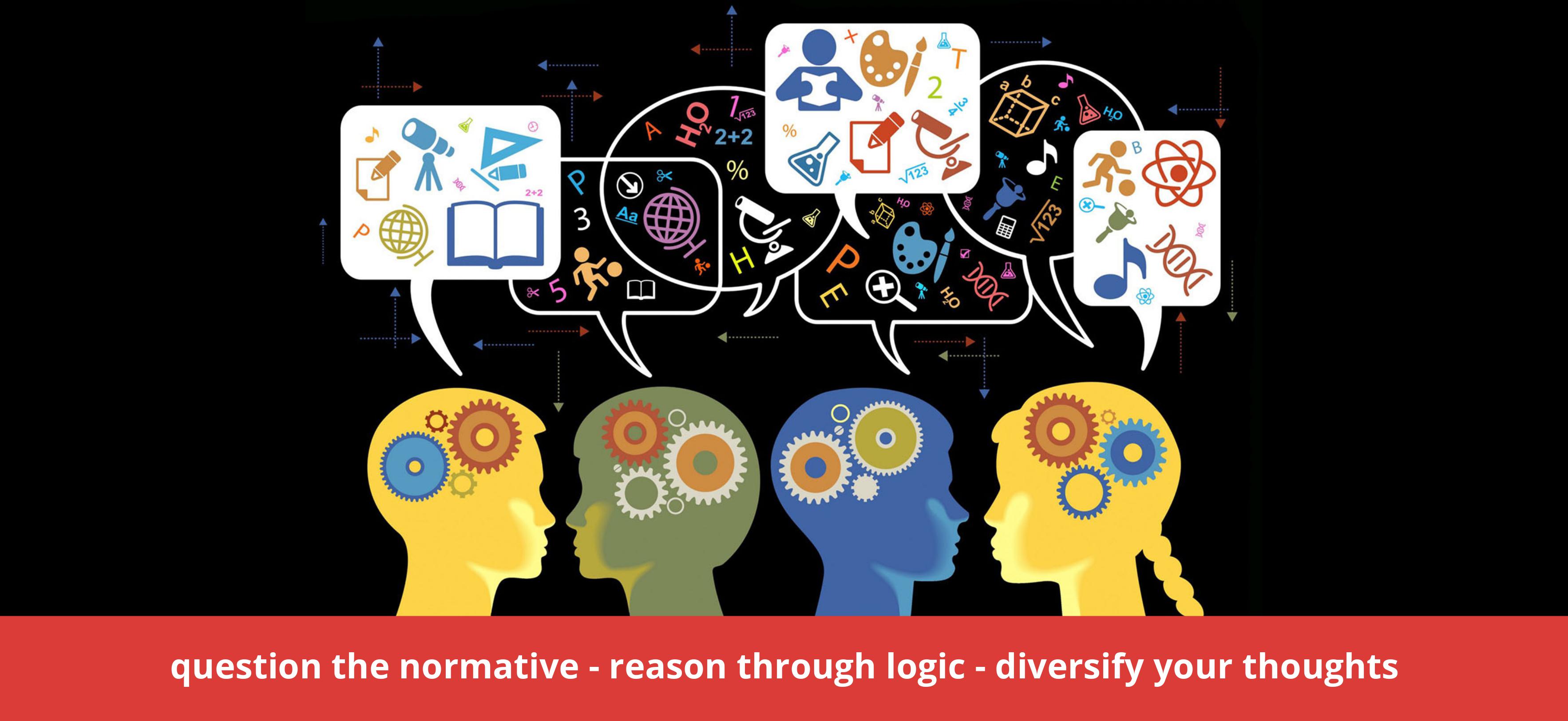Critical thinking: a sure-shot or a long-shot?
Blogs Home
- 29 Jul 2019

The academic scenario in schools is that of a horse race - you don’t know the entire plan, the complete image isn't visible to you and much like horses running on a track with their eyes half-covered, on a path that they are used to, and looking at nothing but the final ribbon, students in schools have more or less the same attitude. This is why life beyond school is often a shock and can be a little daunting.
Critical thinking is hence, a life skill that you never really think about unless you’re appearing for college and job entrances. Critical thinking, in the most basic words, means an ability to form a judgement through an analysis of facts and evidence. The lack of critical thinking that we see among us, in the vast majority of people, is due to the practice and prevalence of several concepts and practices like - groupthink, social conformity, extreme and rigid idealism, etc. that run contrary to critical thinking. And as a life skill, critical thinking is extremely important, especially among students, considering this what ‘reasoning’ is based on.
There are three core habits that you can develop to become a critical and rational thinker:
- Questioning the normative
- Reasoning through logic
- Diversification of thought
Now, I realise that these are simple and not new things, and that reading these pointers isn’t exactly life-changing. However, simple doesn’t mean easy!
Questioning the normative
There was a time when the brightest brains on the planet believed that the Earth that we inhabit was round and flat, not spherical. And up until recently, people believed that the atom was the smallest possible particle. So, it isn't wrong to question the pre-existing norms of society and the world. Socrates strongly believed that power doesn’t mean intellect; he taught his principles to question everything. When we question the pre-existing assumptions of the world, the outcome is original and authentic - it has a certain sense of clarity. The power of questioning is also possibly one of the most important one there is when it comes to writing logical reasoning or problem-solving based answers in competitive exams.
Reason through logic
For Aristotle, logic is the only way that can lead us to find knowledge about absolutely anything. And it is only the cognitive power of reasoning that can take us towards logic. Reasoning helps one develop a ‘chain of logic’ which leads to the final truth. Ask yourself this while forming an opinion - does the evidence and facts support it? Does after analysing everything that I find, I am led me to this particular conclusion?
Under this, there is also the theory of ‘post-hoc’ thinking that, in simple words, means ‘cause-effect’. This is another very helpful tool when you’re writing your answers. In this fallacy people believe that if, for instance, B follows A, it would mean that A is the cause for B. When you support your arguments with the required reasoning, you make yourself sound more concise and less ambiguous, and when it comes to your exams, the lesser the ambiguity, the better.
Diversification of thought
Change is the one thing that is constant in our lives. Though the statement is paradoxical in nature, it is as true as it can get. This is why it makes it significant that one must be open to others’ thoughts and opinions. It is very crucial to get outside your own personal bubble. Not only you would get to know more about than just what you think, but it might also help you to reach a better conclusion. This saves one from becoming a slave to the rigidity of thought and helps one gain richer insights.
So, finally, is critical thinking significant in decision making? Yes.
Is it important for reasoning and formation of thought processes? Also, yes.
Even though the ‘factor of luck’ is sometimes evident when it comes down to competitive examinations, be rest assured that smart work conquers all. And while I know that these techniques are basic and nothing unheard of, the application is rare. As Voltaire puts it in the simplest of words, “Common sense is not so common.”
Regards, Devyani
Blogs Home



